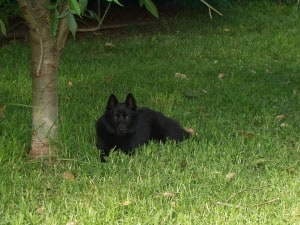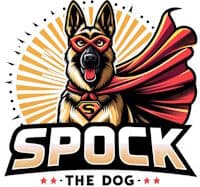
They do well with other animals. Schipperkes tend to be very stubborn, which can cause problems when it comes to obedience training. They may also be protective of their food and toys. To train the Schipperke, it is necessary to be gentle and patient, but make sure the dog knows who is in charge. While Schipperkes are active dogs they do not require a lot of exercise making them wonderful apartment dogs.
The Schipperke is quite small, reaching only about 13 inches in height and weighing up to 18 pounds. They have a thick, straight, harsh outer-coat and a soft, dense undercoat. The Schipperke’s hair is shorter on the face and legs. The Schipperke has a fox-like face, which many think resembles that of a terrier. Schipperkes are almost always black, although the coat may take on a reddish hue when shedding.

However, the Schipperke did not become popular in the States until about 1930.Schipperkes are known for their ease of care, in fact they are often called “wash & wear” dogs because they require practically no grooming except at shedding time. Brushing when needed is all that’s required to keep this beautiful dog looking wonderful.Some common health concerns associated with the Schipperke include epilepsy, Legg-Perthes Disease and hypothyroidism.
